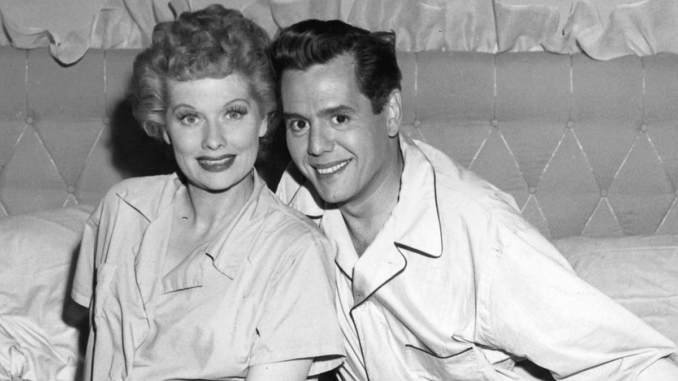
For millions of television viewers, the character of Ethel Mertz is synonymous with laughter, loyalty, and friendship. As the long-suffering landlady and best friend of Lucy Ricardo on I Love Lucy, Vivian Vance brought a remarkable blend of comedic timing and heartfelt sincerity to her role. Her on-screen dynamic with Lucille Ball was a masterclass in comedic partnership, and their friendship became the emotional core of the show. Yet, despite her undeniable success and her status as a television icon, there was one thing about her role that Vivian Vance absolutely hated: the physical appearance of her character.
This deep-seated insecurity and dissatisfaction with her on-screen persona is a poignant and often overlooked part of the I Love Lucy story. While the show was a triumph for Vance, it came at a personal cost. She felt that the writers and producers were deliberately making her character look dowdy and unglamorous, and she deeply resented it.
Vivian Vance was a talented and celebrated stage actress before she joined the cast of I Love Lucy. She was known for her elegance and her beautiful figure, and she took great pride in her appearance. However, when she was cast as Ethel Mertz, she was asked to change her look. The producers wanted her to appear older and less glamorous than her co-star, Lucille Ball. They believed that for the show’s comedic dynamic to work, Ethel had to be the sensible, down-to-earth foil to Lucy’s outrageousness. This meant a wardrobe of frumpy housedresses, unstylish hairstyles, and a general lack of sparkle.
The decision to make Ethel Mertz appear less attractive was a deliberate one, reportedly made at the insistence of Lucille Ball herself. While Ball and Vance were incredibly close friends, Ball was also a shrewd businesswoman who understood the power of visual comedy. The visual contrast between the glamorous, fiery-haired Lucy and the matronly Ethel was a key part of the show’s comedic formula. For Ball, it was a creative decision. For Vance, it was a personal insult.
Vance’s insecurity about her appearance on the show became a point of contention between her and the producers. She often complained about her unflattering costumes and hairstyles, and she felt that her character was being made to look older than she actually was. At the time of the show’s premiere, Vance was only 42, just two years older than Lucille Ball. Yet, the show’s narrative, and the way her character was styled, made her appear as a much older woman. The running joke about Ethel and Fred’s advanced age, combined with her frumpy appearance, was a constant source of frustration for Vance.
The emotional toll of this on-screen transformation was significant. Vance would often go to great lengths to look her best off-camera, and she was fiercely protective of her image in public appearances and photo shoots. She wanted the world to see her as the elegant and beautiful woman she was, not as the frumpy Ethel Mertz. This internal conflict—between her professional success and her personal dissatisfaction with her on-screen image—was a constant struggle for Vance throughout her time on the show.
The issue came to a head on multiple occasions. According to show insiders, Vance would often threaten to quit the show if the producers didn’t make changes to her character’s wardrobe. Lucille Ball, ever the pragmatist, would often step in to mediate, reassuring her friend that her appearance on the show was essential for the comedy but that off-screen, she was still the beautiful and stylish Vivian Vance. While Ball’s reassurances were heartfelt, they didn’t completely alleviate Vance’s pain.
Despite her personal struggles, Vance was a true professional. She never let her dissatisfaction with her character’s appearance affect her performance. She was always on her mark, delivering her lines with a perfect mix of sarcasm and sincerity. Her on-screen chemistry with Lucille Ball and William Frawley was undeniable, and she earned a well-deserved Emmy for her performance. Her talent was so immense that she made the character of Ethel Mertz a beloved icon, even while she was privately struggling with the persona she had to inhabit.
The story of Vivian Vance’s resentment of her on-screen image is a powerful reminder that behind the laughter and the adulation of a beloved show, there can be a very human struggle. It highlights the often-painful contrast between an actor’s public persona and their private self-image. For Vance, the success of I Love Lucy was a double-edged sword. It brought her fame and financial security, but it also forced her to grapple with a version of herself she didn’t want the world to see.
In the end, Vivian Vance and her iconic performance as Ethel Mertz are a testament to her immense talent and her dedication to her craft. She created a character that will forever be a part of television history, a character so beloved that her on-screen look is now a part of the cultural zeitgeist. But by understanding her personal struggle, we gain a new appreciation for the real-life woman behind the laughter, the talented actress who, despite her private pain, gave the world one of its most cherished and enduring characters.